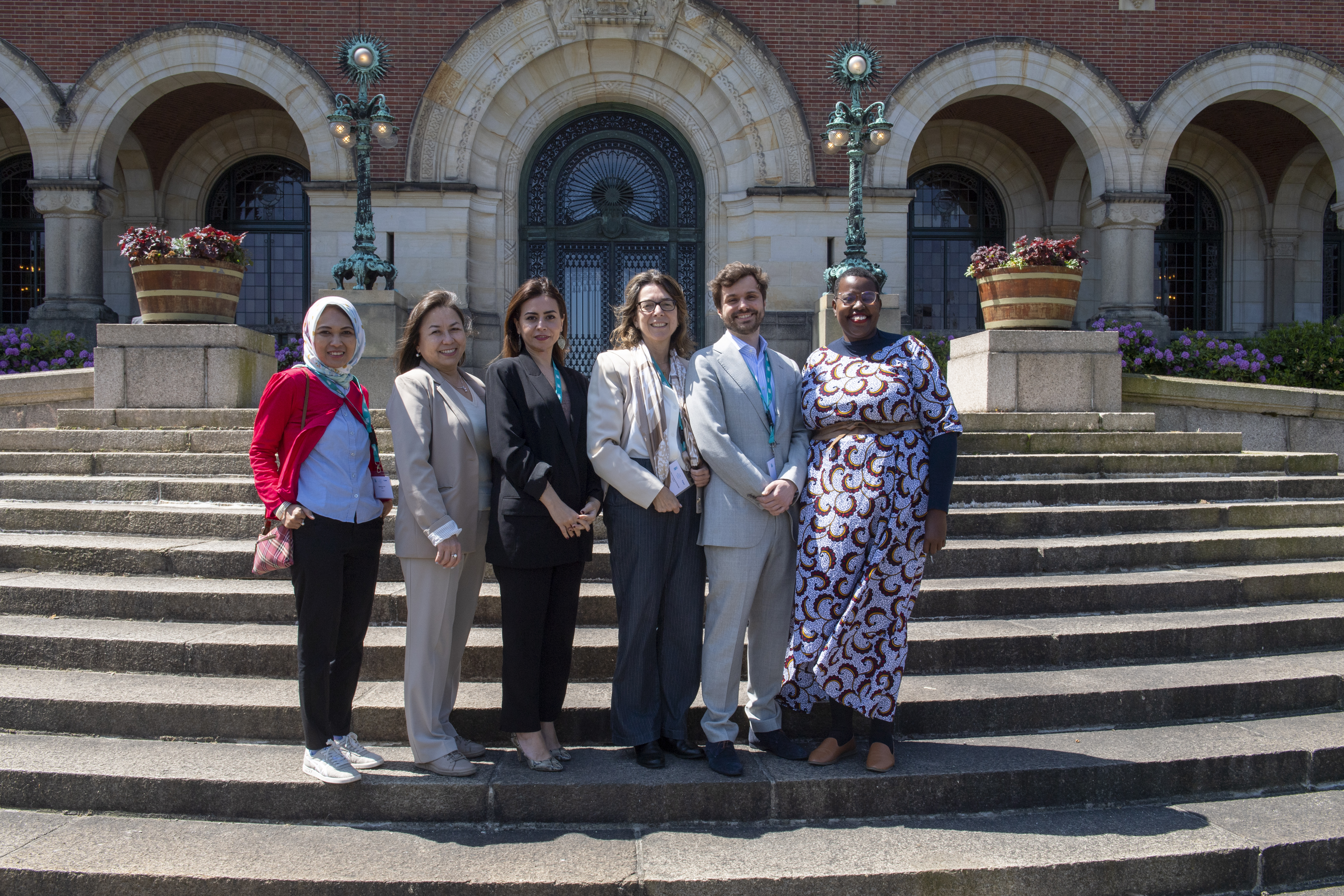Equality, Diversity, and Inclusion Working Group

The EDI Working Group continues the work of the Gender Working Group formed in 2017 to contribute to implementing the Statement of Principles and Actions: Promoting the Equality and Status of Women in Research (endorsed in 2016). As of 2023, to accommodate the increased mandate, the Gender Working Group was renamed EDI Working Group. Accountable to the Executive Support Group, the group is guided, in its deliberations, activities, and strategic planning, by the idea that broadening participation and practicing inclusive analysis contributes to research and innovation. It promotes gender equality from an intersectional perspective, considering the overlapping of gender with other dimensions of inequality, such as race, ethnicity, socioeconomic status, disability, and geographical location. On that basis, the EDI WG is advancing the following initiatives:
- Promoting the integration of an equity, diversity, and inclusion lens into the design of the GRC’s vision for the next ten years, strategic planning, road map, and annual themes.
- Striving to integrate relevant EDI considerations in GRC-developed programs, resources, and future work streams.
- Working to build knowledge and provide strategic and transformative analysis and advice to the GRC and the member organizations on an ongoing basis.
In 2021, the EDI WG produced a seminal report underscoring the importance of collecting, analysing, and reporting gender-disaggregated data. This report marks the first aggregation of trends, practices, and experiences of GRC-participating organisations regarding gender-disaggregated data. It focuses on applications, review, and funding; the gender dimension in research; and data at the intersection of equality, diversity and inclusion.
The working group is composed of representatives from all the GRC regions nominated and supported by their respective GRC Heads of Research Councils. Working group members are the lead EDI WG champions in their respective GRC regions. The EDI WG may request additional expertise as necessary.
Current members
| Americas | |
| Ana Maria Fonseca de Almeida (co-lead) | São Paulo Research Foundation (FAPESP) Brazil |
| Stephany Scotto | National Agency for Research and Innovation (ANII) Uruguay |
| Sharapiya Kakimova | National Agency for Research and Development (ANID) Chile |
| Susana Celis | National Agency for Research and Development (ANID) Chile |
| Anne Webb | Natural Sciences and Engineering Research Council (NSERC) Canada |
| Asia-Pacific | |
| Ajeng Arum Sari | National Research and Innovation Agency (BRIN) Indonesia |
| Nicola Jenkin | Ministry of Business, Innovation and Employment (MBIE) New Zealand |
| Romyen Kosaikanont | Thailand Science Research and Innovation (TSRI) Thailand |
| Thilina Kandanamulla | National Science Foundation (NSF) Sri Lanka |
| Europe | |
| Adrien Braem (co-lead) | Science Europe Europe |
| Duygu Çelik | The Scientific and Technological Research Institution of Türkiye (TÜBİTAK) Türkiye |
| Eva Reichwein | German Research Foundation (DFG) Germany |
| Lisa Hattersley | Swiss National Science Foundation (SNSF) Switzerland |
| Marion Boland | Taighde Éireann | Research Ireland Ireland |
| Nia Glover | UK Research and Innovation (UKRI) United Kingdom |
| MENA | |
| Maha M. Khayyat | King Abdulaziz City for Science and Technology (KACST) Saudi Arabia |
| Maryam Al Nabhani | Ministry of Higher Education, Research and Innovation (MoHERI) Oman |
| Sadim Jawhar | National Research Fund (QNRF) Qatar |
| Besma Ben Mesbeh | Ministère de l'Enseignement Supérieur et de la Recherche Scientifique (MESRS) Tunisia |
| Roula Douglas | National Council for Scientific Research Lebanon (CNRS-L) Lebanon |
| Sub-Saharan Africa | |
| Aminata Kabore-Compaore | Le fonds National pour la Recherche et de l'Innovation pour le Developpement (FONRID) Burkina Faso |
| Wilfred Kambire | Fonds pour la Science, la Technologie et l'Innovation (FONSTI) Côte d'Ivoire |
| Bestina Daniel | Tanzania Commission for Science and Technology (COSTECH) Tanzania |
| Daouda Diouf | Ministère Enseignement Supérieur et Recherche (MESRI) Senegal |
| Generosa Simon | National Commission on Research Science and Technology (NCRST) Namibia |
| Johannes Ndjamba | National Commission on Research Science and Technology (NCRST) Namibia |
| Marcia Vitorino Nhacuongue | Fundo Nacional de Investigação (FNI) Mozambique |
| Ndèye Sine Diop | Ministère Enseignement Supérieur et Recherche (MESRI) Senegal |
| Nsama Mataka | National Science and Technology Council (NSTC) Zambia |
| Robert Gansore | Le fonds National pour la Recherche et de l'Innovation pour le Developpement (FONRID) Burkina Faso |
| Rudo Tamangani | Research Council of Zimbabwe (RCZ) Zimbabwe |
| Thashni Pillay | National Research Foundation (NRF) South Africa |
